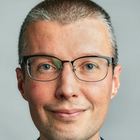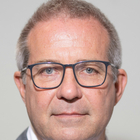A new old principle
Ownership for sustainable development cooperation
Keijzer, Niels / Stephan KlingebielThe Current Column (2019)
Bonn: German Development Institute / Deutsches Institut für Entwicklungspolitik (DIE), (The Current Column of 21 January 2019)
Bonn, 21 January 2019. Ownership can quite rightly be regarded as the central principle of development policy. Development cooperation can only succeed in the long-term if developing-country stakeholders regard externally financed projects as “theirs” and are closely involved in planning, implementing and evaluating them. Ownership has thus been at the heart of the development policy debate stretching back as many as 50 years. However, there have frequently been times when international partners have instead tended to adopt a donorship approach to developing countries, i.e. consciously or unconsciously deciding by themselves what is ‘good’ for a country’s development. Conversely, international agreements on development effectiveness (Paris 2005 and Busan 2011), the Paris Climate Agreement and the 2030 Agenda all emphasise ‘national ownership’. The principle also holds an important place in South-South cooperation. In this respect, the consensus throughout decades of development policy has been that ownership is a good and important principle. There is nothing inherently wrong with it. Nevertheless, the development policy and development cooperation landscape has seen a major transformation over the past five to ten years. Development cooperation is being increasingly – and more explicitly – guided by the donors’ interests, be these the European migration agenda, direct support to companies in the respective donor countries or the crude threats of cuts emanating from the Trump administration. Finally, conditions in the developing regions themselves have changed dramatically: more options for development finance, e.g. from India and China, means less dependence on the traditional Western donors, for instance. This raises a key question, though one given scant consideration to date: are not all these changes deeply significant for our understanding of how we should now be viewing ownership? An ownership principle that sounds desirable to all but that is ultimately at the mercy of each actor’s individual interpretation and that cannot therefore exert any actual effect risks losing its meaning. This prompted the German Development Institute / Deutsches Institut für Entwicklungspolitik (DIE) to conduct a comprehensive study to both explore the current development policy context and draw conclusions to inform a new understanding of ownership as relevant to the ongoing debate on effective development cooperation. Firstly, the way in which development cooperation is currently organised has an impact on ownership, a fact that is often not yet sufficiently embedded in the consciousness of the actors involved. Development cooperation funding is increasingly being earmarked for specific purposes in donors’ central budgets (climate change, employment initiatives, etc.), reducing the importance of more flexible bilateral programmes. The growth in the number of trust funds, Global Funds and other ring-fenced resources has contributed to the centralisation of decision-making processes. This means that developing countries are often involved in decisions to a lesser extent, more indirectly or only late in the day. Although there can be good reasons for a donor focusing on a certain issue in a region, this may conflict with national development priorities. Secondly, the past few years have seen the view emerge – sensibly so – that development cooperation should not only be aligned with the government in a partner country. This multi-actor perspective is important and the right thing to do, and it has helped move us away in recent years from an understanding of ownership centred primarily around developing-country governments. Instead, much of the work is now aimed at getting parliaments, civil society actors, the private sector and other partners involved. At the same time, however, an approach like this gives rise to conflicting objectives. What happens if, to all intents and purposes, a parliament has only minimal interest in development and parliamentarians exploit their role for short-term political ends, turning them into “blockers” (such as in Liberia to an extent)? Or, how should ownership be achieved outside the government in countries where opportunities for civil society groups, for instance, to get involved under their own steam are very limited at best (e.g. in Rwanda)? The crucial debate on civil society’s shrinking and changing space for action as an overarching trend in many regions of the world highlights that this problem is becoming more common. What do the very different trends and fast-changing environment mean for today’s understanding of the ownership principle? Our study shows that ownership has to remain a central principle if development policy is to have a lasting impact. However, conflicting objectives are commonplace. Involving more actors can come at the expense of efficiency, while greater ownership by developing-country stakeholders tends to get in the way of the donor’s need for oversight. There are no easy or perfect solutions. In general terms, an ownership that is relevant to the specific context should be promoted more (which actors should be involved? How can ownership be furthered if funds have been ring-fenced? And so on): here lies the ever-shifting challenge facing development cooperation today.



